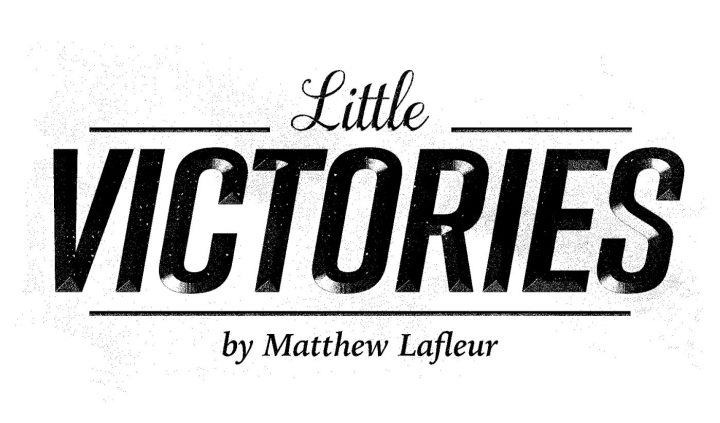A New Year’s Resolution I Can Keep
Written by |

This time of year, redefinition is almost a buzzword. Resolutions and goals are a hailstorm assault on social media. As the calendars mark another complete orbit around the sun, the timing seems perfect to redefine yourself, to create a better you.
That’s never been a problem for me, at least in theory. I’m not claiming to have a pristine record when it comes to following new exercise regimens, diets, or any of the other “resolutions” people sincerely plan at this time of year. No, I’m made of weaker stuff: My plans to limit my sugar intake crumble when someone brings brownies into the office, and I try to work out six days a week — unless it’s raining or I’m feeling particularly lazy.
The idea behind New Year’s resolutions has always been attractive to me. It’s easy for me to want to change — to alter my eating habits, spend my free time differently, etc. — when I don’t think very highly of myself in the first place.
I don’t know if my low self-esteem is entirely due to Friedreich’s ataxia (FA) and its effects on my movements which are becoming more awkward, but it has exacerbated my feelings of worthlessness.
I used to see FA only as a weakness, a source of shame. When my first symptoms began to manifest, I wanted to hide it away and live in denial. I was unspeakably embarrassed by the disease and ashamed of who I was.
Join the FA forums: an online community especially for patients with Friedreich’s Ataxia.
But I’m starting to see how wrong I was about both my ideas regarding FA and New Year’s resolutions.
Some people view FA as a gift and are even thankful they have it, citing things like the awesome community they’ve found and the patience that the disorder teaches them. I question whether these people should be trusted for life advice.
In my opinion, loving a debilitating and life-limiting disorder, which has claimed the lives of hundreds of people, is a clear example of Stockholm syndrome.
But the frustrating part about the idea of FA as a blessing is that there is a small hint of truth in it. Humans are resilient, even in the direst circumstances we find ways to adapt and sometimes thrive. As a blind person’s other senses can be heightened, some people with ataxia may find unaffected aspects of themselves enhanced.
Maybe they are more mature, or perhaps they’re kinder. Or wiser. It’s not all or nothing. FA is neither ultimately evil begetting only evil, nor ultimately good begetting only good.
As I get older, I am learning to see the world in less black-and-white terms. FA can be a terrible thing that we should focus all our energy on treating, curing, and ultimately eliminating — and it can also cultivate some positive character traits.
It is uncomfortable to acknowledge that both the black and the white are true. FA is neither a gift nor a curse in itself, and it can only be judged, for better or worse, in the reciprocal actions we take.
And that thought leads me back to resolutions. Maybe I’ve been thinking about them incorrectly all along. Redefinition isn’t the goal of a New Year’s resolution; like I am bad, and I need to be good. Improvement is the goal, and sometimes improving is enough.
I’m learning to see myself less like a victim of FA and more as a work in progress, trying to improve my life.
It’s not black or white. I can hate what this disease does to my body, and hate that it’s taken friends from me far too early, while still reaping patience, relationships, and compassion.
The more I do that, the more clearly I look at my weird self and think that maybe — just maybe — I am doing OK. And that’s a huge victory.
Happy 2019. Thank you for reading. Keep your head up.
***
Friedreich’s Ataxia News is strictly a news and information website about the disease. It does not provide medical advice, diagnosis or treatment. This content is not intended to be a substitute for professional medical advice, diagnosis, or treatment. Always seek the advice of your physician or another qualified health provider with any questions you may have regarding a medical condition. Never disregard professional medical advice or delay in seeking it because of something you have read on this website.




Kelly Barendt
I love your column, Matt! You really hit the nail on the head :)
Matt Lafleur
Thanks Kelly! Means a lot, coming from a great blogger!